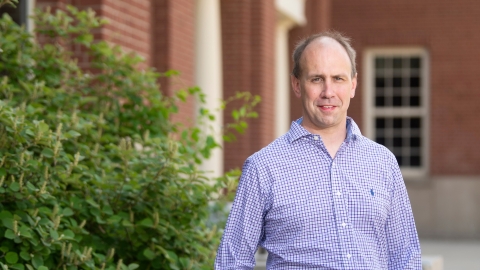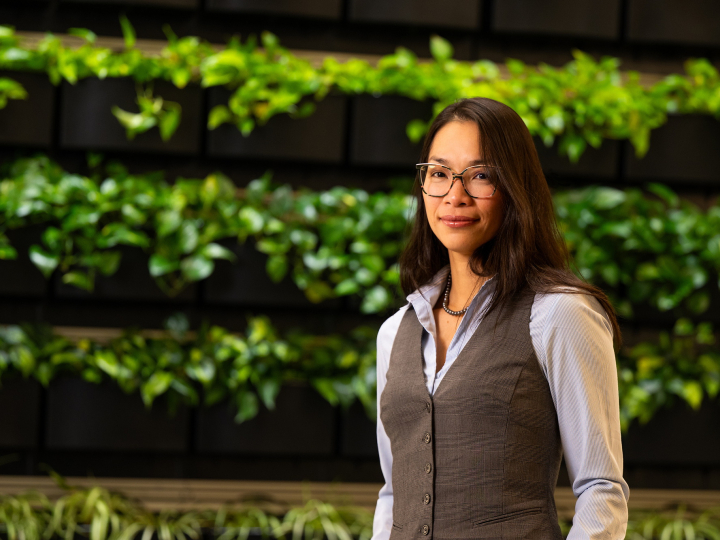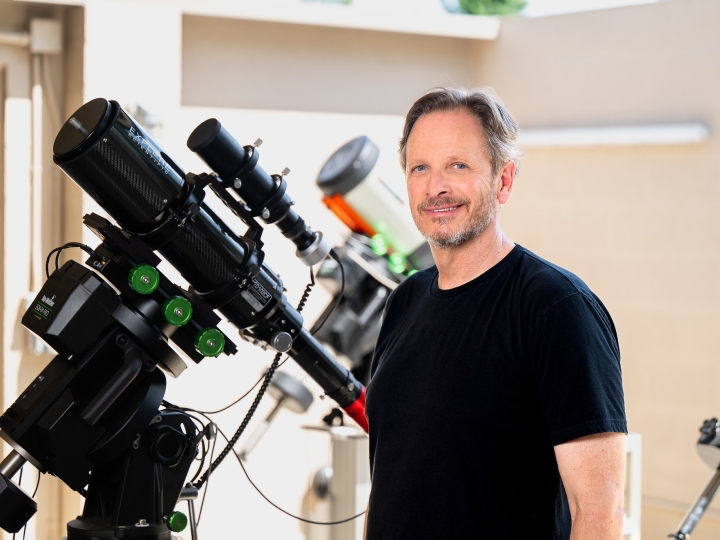
Christopher Ellis, Political Science
June 1, 2021
Professor Chris Ellis ’00, political science, is director of the Bucknell Survey Research Laboratory. Photo by Emily Paine, Communications
No matter what field you’re in, it’s important to be able to engage with perspectives that are not your own.
Bucknell University Professor Christopher Ellis '00 calls himself an apolitical political scientist. "I've voted for Democrats, and I've voted for Republicans, and I've voted for Libertarians," he says. "I was attracted to this profession not because of a commitment to any particular cause, but for the same reason that might motivate a chemist or engineer to go into their fields: a desire to understand why the world works the way that it does."
Ellis has always been fascinated by the way groups of people behave, especially when it comes to politics. "Why do we have people who think and act like liberals, but still call themselves political conservatives?" he asks. In order to figure out what makes voters tick, Ellis and his students analyze data from a variety of national sources. "You can't take the numbers at face value, but you can't be blindly critical either. The truth lies somewhere in the middle," he explains.
Mastering quantitative analysis is a skill that Ellis knows will serve his Bucknell students well, even if they pursue careers outside of politics. "No matter what field you're in, it's important to be able to engage with perspectives that are not your own," he says. "And when you disagree, to be able to base your arguments on evidence and data."
Creating and conducting surveys is another skill Ellis emphasizes in his teaching. One student's recent honors project involved digitally manipulating a fictitious candidate's photograph to depict the same candidate at two different body weights. Respondents were shown one of the versions and asked to rate the candidate in a number of areas. The results? Image does matter when it comes to how competent we perceive political candidates to be.
"My goal is for my students to leave here with a deeper appreciation for intellectual and ideological diversity," Ellis says. "When I can help a student to truly engage with what the 'other side' is saying, rather than just demonizing or belittling it, then I know I've done my job."

